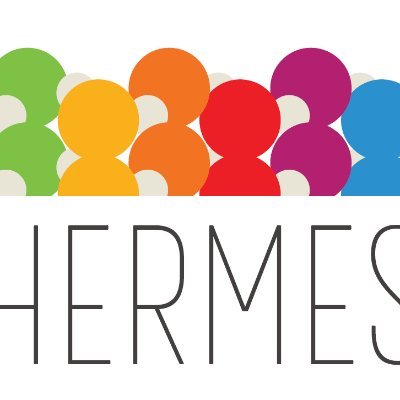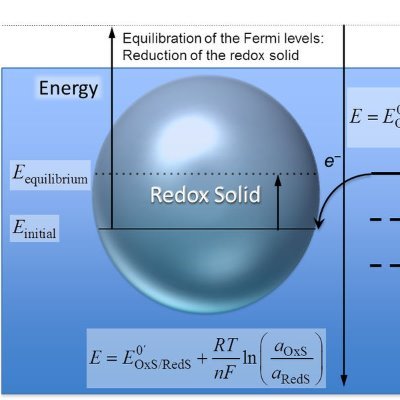
HERMES Project
@HERMESProjectEU
Followers
72
Following
44
Media
0
Statuses
32
H2020-FETPROACT-EIC-05-2019 project HERMES Breakthrough zero-emissions heat generation with hydrogen-metal systems
Joined September 2020
We are delighted to have hosted the @HERMESProjectEU consortium meeting last two days at @BernalNews @UL ! Lots of insightful discussions and excited for what's to come.
0
4
17
Paper on Interactions between Hydrogen and Palladium Nanoparticles: Resolving Adsorption and Absorption Contributions by Lilian Moumaneix, Akseli Rautakorpi and Tanja Kallio is out: https://t.co/6hSs7gKiGY
chemistry-europe.onlinelibrary.wiley.com
Interactions between hydrogen and palladium nanoparticles: The electrochemical absorption of H into Pd and its subsequent desorption is studied. An original model is proposed to separate the differ...
1
2
10
Our overview article is online at Topics in Catalysis (@ECS_TUM, @TU_Muenchen, @econversion_de, @TUMCatalysis, @HERMESProjectEU): https://t.co/CwRDyPscZh
link.springer.com
Topics in Catalysis - To advance meaningful guidelines in the design of electrocatalytically active catalysts, a knowledge of the nature of active sites is the starting point. However, multiple...
0
2
7
Why do alkali metal cations change the hydrogen evolution reaction mechanisms at Pt? Read more on this challenging topic in Nano Mat. Sci. (@ECS_TUM, @TU_Muenchen, @econversion_de, @TUMCatalysis, @HERMESProjectEU), and many thanks to @AlexandrovLab !: https://t.co/PeJQZMmEOu
2
3
11
A successful MSc defence on how to make Pd nanoparticles without surfactants today @ECS_TUM, @TU_Muenchen, @econversion_de, @TUMCatalysis, @HERMESProjectEU . Congratulations to Kais, and very much looking forward to continuing our collaboration soon!
0
2
19
Why the electrical double layer capacitance is so dependent on the electrode surface structure? Check our opinion in "Structure-Dependent Electrical Double-Layer Capacitances of the Basal Plane Pd(hkl)...": https://t.co/zMcVFFY27J.
@TU_Muenchen, @econversion_de, @HERMESProjectEU
pubs.acs.org
Electrical double-layer capacitance (CDL) measurements are among the key experiments in physical electrochemistry aimed to understand the properties of electrified solid/liquid interfaces. CDL serves...
0
2
7
First of the major publications coming out of HERMES project is out now. We are looking at fundamental aspects of proton electroreduction at Pd surfaces.
Elucidating the Structure–Activity Relations in Proton Electroreduction at Pd Surfaces Thanks to our experimental partners @ECS_TUM and EU funded project @HERMESProjectEU
https://t.co/1xvL0I0LZW
@BernalNews
#bridging_gap_experiment_theory
0
3
8
First paper associated with the HERMES project is out. This deals with developing the experimental techniques we will further utilize in our project.
Our collaborative paper with Profs. Ifan Stephens and Federico Calle-Vallejo "Monitoring active sites for hydrogen evolution reaction at model carbon surfaces" is now online. For the first time we see them with such a resolution: https://t.co/H01LPyGAq8
1
1
4
Our collaborative paper with Profs. Ifan Stephens and Federico Calle-Vallejo "Monitoring active sites for hydrogen evolution reaction at model carbon surfaces" is now online. For the first time we see them with such a resolution: https://t.co/H01LPyGAq8
1
6
24
Reproduction of some anomalous effects in Pd-D system is the goal of the project, and we acknowledge that there is a high likelihood that this goal is not fulfilled. 9/9
0
0
0
We are looking forward to do some interesting science in the fields of electrocatalysis, nanoparticle synthesis, electrodeposition, calorimetry, catalyst stability, etc., utilizing large scale research infrastructure including synchrotron x-ray beamlines etc. 8/n
1
0
0
When submitting the proposal in November 2019, we thought it was highly unlikely to get funded, and we were very surprised to see the high scores from the external evaluators. 7/n
1
0
0
We acknowledge that this is a high risk project, so the plan B is to study isotope and cation effects in electrocatalysis. Even if we see some anomalous effects, the focus is on reproducibility to allow better characterization and understanding of these effects. 6/n
1
0
0
We will revisit and try to replicate some experiments reported in the literature, including: https://t.co/Qf4ndgKxvr 5/n
1
1
0
As a team mostly composed of electrochemists, we saw that we could propose to do interesting science relevant to our research expertise, i.e. use our knowledge to revisit this topic as the Google funded team authoring the Nature perspective did. 4/n
1
0
0
Our decision to apply for this call was influenced by two documents: https://t.co/jLWmYe3u4b. 2/n
1
0
0
Recently, our project was criticized here: https://t.co/HH8J5HKOWR As a response, we'd like to give a bit of a background for this project. 1/n
forbetterscience.com
Cold Fusion is back, and EU Commission now funds it with €10 million. One project specifically builds on Fleischmann and Pons, the other is run by Italy’s most notorious Cold Fusion loon, Fra…
3
1
2
Our project is highlighted here: https://t.co/K4jfXOyvTD
0
6
4



